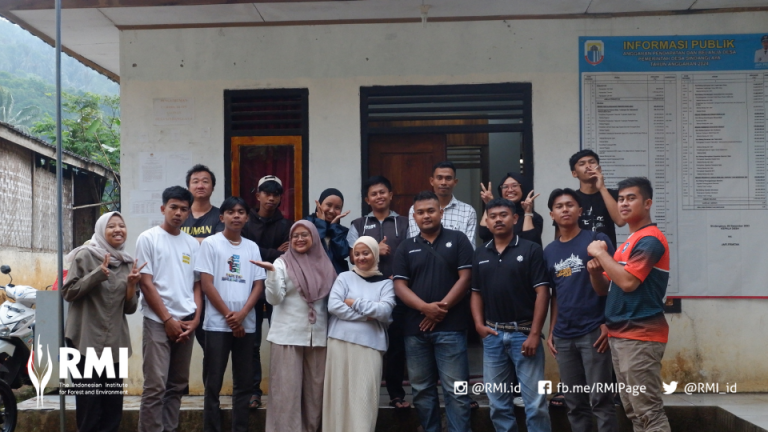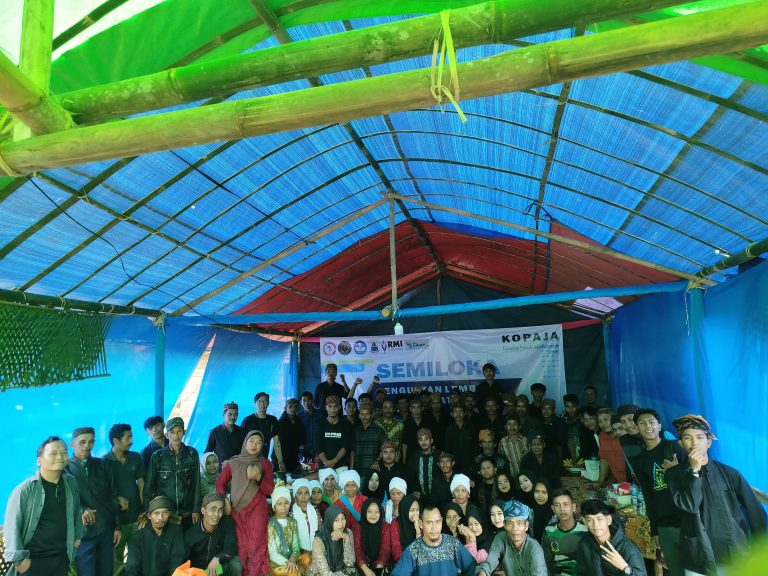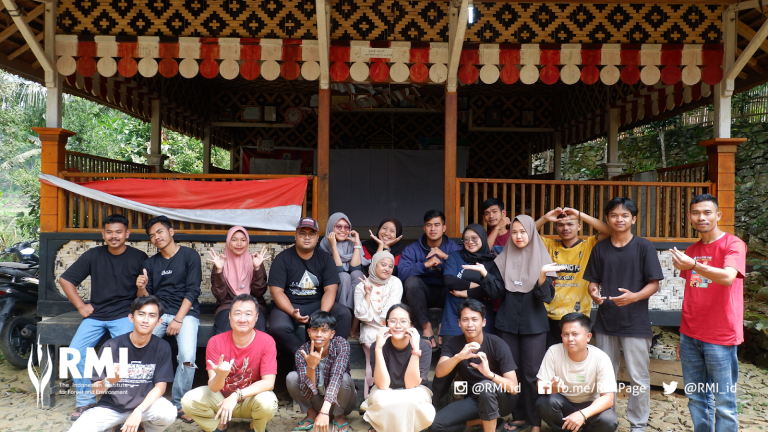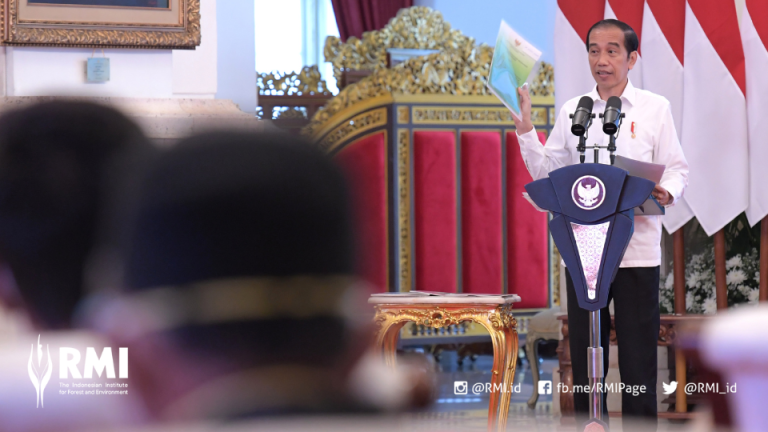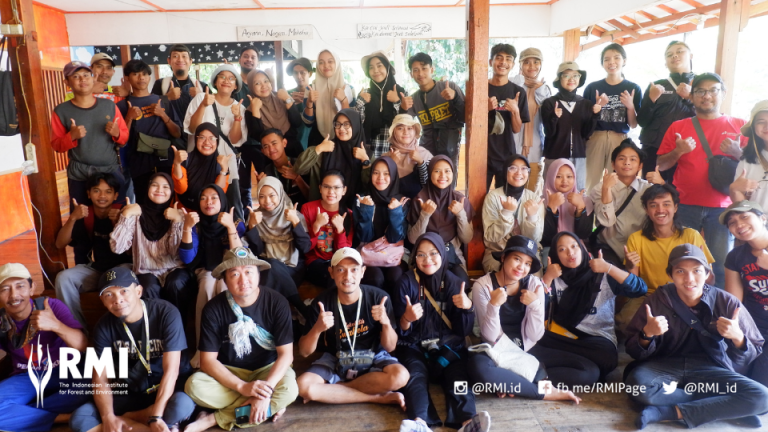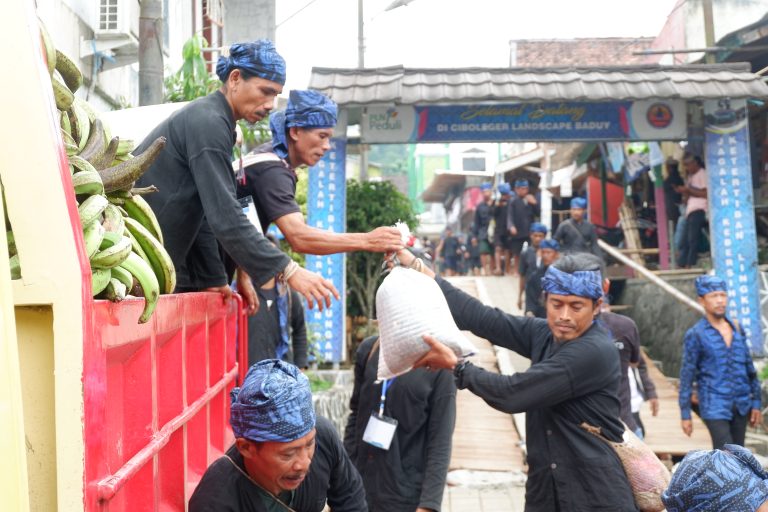
Adopted by the ILC 2018 Assembly of Members
1. We, Members of the International Land Coalition (ILC), on the 27th of September 2018, gathered in Bandung, Indonesia, for our Assembly of Members, following the Global Land Forum (GLF) under the kind hosting of the Government of the Republic of Indonesia and the Global Land Forum National Organizing Committee. We represent over 250 civil society and multilateral organisations from 77 countries in Africa, Asia, Europe, Middle East, North America, Latin America and the Caribbean.
2. Despite our diversity and many different approaches, we have chosen to come together around the shared mission of building people-centred land governance, as fundamental to a just, equitable and inclusive world. The
realization of our ten commitments to people-centred land governance is what guides and drives our joint actions as a coalition.
3. The Sustainable Development Goals have brought a historic recognition by UN Member States’ leaders to the importance of land rights. However, since the last Global Land Forum in Dakar, Senegal in 2015, we observe trends that deeply challenge our shared goal to Leave No One Behind.
4. Over the last three years, we have seen extreme socio-economic inequality becoming more acute. The levels it has reached in many of our countries are both unjust and unsustainable. Wealth and power, in terms of control over land and other natural resources, are often concentrated in the hands of a few at the expense of many. Moreover, the impacts of climate change are becoming more visible, exacerbating conflict over land, forest, rangelands, water and other natural resources, increasing human suffering and driving migration. Land degradation, closely interlinked with insecure land rights, in both rural and urban areas, remains a major challenge which calls for action. Corruption and lack of transparency and accountability continue to fuel dispossession and conflicts. Justice and democratic values are challenged and many of our members are constrained by shrinking space for civil society, including in the context of occupation and armed conflict where particular consideration is needed. For Land and Environmental Defenders, 2017 has been the deadliest year on record. Racism and discrimination against indigenous peoples persist. Despite the rise of strong, women-led movements that have challenged the status quo and started to shift mind-sets and norms in many countries, patriarchy and discriminatory laws and practices persist, preventing equal land rights for women, particularly from the most marginalized communities.
5. Our success in achieving the Sustainable Development Goals will depend on our willingness to fundamentally transform systems that promote inequality and injustice, and fuel conflict and exclusion. Land rights epitomise this challenge, and also the opportunity for real change. In this context, our mission of people-centred land governance is more imperative than ever to make genuine progress toward the Sustainable Development Goals. It is ambitious, but the power of our network and the advancements made by working together to build democratic processes in decision making and control over land and natural resources, boost our optimism and confidence that we will be successful.
6. We work on many fronts to secure progress, but today we call global attention to two particularly critical issues in our current context:

7. PROTECTION FOR LAND AND ENVIRONMENTAL DEFENDERS
7.1 The dramatic and unacceptable upward trend of killings, attacks and criminalization of Land and
Environmental Defenders – both individuals and communities – must be reversed. The current situation is at crisis levels in many countries, and directly affects our member organisations – especially those of peasants
and indigenous peoples. The recent reports of the Special Rapporteurs on the Situation of Human Rights Defenders, on Human Rights and Environment and on the Rights of Indigenous Peoples noted the rise of “a global crisis” of attacks against environmental and human rights defenders, highlighting that many of these defenders are members of indigenous peoples.
7.2 We honour the memory of those in our network who have lost their lives since we last met in 2015, due to their heroic work, as Human Rights Defenders, to defend the land rights of their communities. We note for
instance that in Indonesia over the past decade, Consortium for Agrarian Reform (KPA) reports the eviction of 3.5 million people through landgrabs, detention of 1,617 Land and Environment Defenders, and killings of 122 Land and Environmental Defenders.
7.3 Considering that most abuses against Human Rights Defenders are related to land rights, it is critical to strengthen the recognition of land rights in human rights frameworks, institutions and instruments, such as the ongoing process at the Human Rights Council on the UN Declaration on the rights of peasants and other people working in rural areas.
7.4 We call on governments to urgently uphold their obligations to protect Land and Environmental Defenders, fully apply the UN Declaration on Human Rights Defenders adopted twenty years ago and ensure companies and investors respect the rights of Land and Environmental Defenders in their activities and supply chains. We are cognisant that for some governments, persecution, attacks and criminalization of Land and Environmental Defenders is a deliberate strategy. We call on such governments to end repressive action and criminalization,and will do all within our power as a coalition to promote accountability and right to justice and to directly support the protection of Land and Environmental Defenders and their communities under threat.
8. AGRARIAN REFORM.
8.1 Agrarian reform must return to national political agendas as a necessary action to redress inequality in rural societies. Far from being an outdated approach, sustainable and gender-equal redistributive agrarian reform is an
essential pathway to a future with less conflicts and a fair sharing of wealth and opportunity. To be successful, it is critical that agrarian reform: 1) builds on coherent and sustainable agricultural, tenure, investment and land use policies; 2) is supported by adequate resources and social infrastructure; 3) is designed and implemented with the meaningful participation of organizations representing smallholders, indigenous peoples, pastoralists and affected local communities; 4) recognizes the intrinsic relationship of indigenous peoples with their lands, territories, and natural resources and endorses all forms of community land rights and customary land tenure rights as a way forward to addressing pertinent land conflicts; and 5) should not be funded by any loan or other external financial support that contradicts people-centred land governance.
8.2 Gains from agrarian reform can be seriously undermined or lost by models of investment based on largescale land acquisition by national and foreign investors. From our experiences, large scale land acquisitions often cause dispossession, forced displacements, and concentration of wealth and opportunity away from affected communities as well as criminalization. We call on the private sector and governments to stop landbased investments that involve large scale transfer of land that dispossess communities or indigenous peoples. All investments, including those in tourism-affecting coastal communities, should be based on partnership rather than exclusion and should be proposed, designed and implemented in ways that prioritise the participation and interests of affected communities and only proceed with their Free, Prior and Informed Consent, as stated in the UN Declaration on the Rights of Indigenous Peoples.
8.3 The UN Decade of Family Farming provides a positive context for agrarian reform; a critical component in a wider package of much needed support by governments to ensure that family farmers, pastoralists and indigenous peoples are able to play a full role as cornerstones of vibrant rural, often social, economies and stewards of healthy territories and ecosystems.
9. For us to best deliver on our joint mission, we realise that there are ways in which we also need to work differently as a coalition. We commit to:
9.1 Moving towards a network that is more responsive to the needs, concerns and interests of rural youth. As individual organisations and jointly as a coalition, we will advocate at all levels for enhanced intergenerational
dialogue and the transfer of leadership, including for facilitating youth, and especially young women, access to and control over land.
9.2 Ensuring that all our actions are shaped by the principles of gender justice, which is a central commitment of our coalition. We acknowledge that our own actions have not adequately challenged discriminatory norms. We commit to demonstrate gender justice in our own organisations and in our coalition, just as we work for a more gender-just world around us. We will ensure women have equal participation and decision-making power, and we will actively challenge and overcome discriminatory practices and the unequal
power structures that facilitate them. We call all stakeholders to take urgent action to overcome pervasive structural discrimination, institutional and cultural barriers, and power imbalances that both perpetuate gender inequality and hinder progress toward gender justice in relation to land and territories and, consequently, impact women’s rights more broadly, including with regard to all types of violence against women, their economic empowerment and voice.
9.3 Strengthen genuine collaboration between diverse national and international civil society and intergovernmental organizations members of our coalition, bringing its nature fully into the reality of how we work. We recognise that in some cases this will mean overcoming differences of perspectives, experiences, resources and capacities of our members. We, as ILC Members, enable and support dialogue and partnership among members, as a coalition of equals, challenging the North-South divide. Wherever we identify
consensus, complementarities and synergies, we build upon these opportunities. Where there are differences we will respect them. We will work to improve coordination, particularly at country level, in application of the
VGGTs, demonstrating the value of such partnerships towards achieving people-centred land governance. Together, in line with the VGGTs, we will continue to call on governments to fully involve civil society organizations in tenure governance systems.
10. We leave Bandung inspired by the powerful memories of the 1955 Bandung Asia Africa Conference, and the outstanding work of our national members in promoting genuine agrarian reform and recognition of indigenous peoples’ territorial rights as steps to people-centred land governance in Indonesia. We congratulate the Government of Indonesia in setting ambitious targets for agrarian reform and social forestry. We warmly congratulate the government for two important announcements made to the Global Land Forum; the moratorium on palm oil expansion, and the signing of the Presidential decree on agrarian reform and look forward to the approval of the Indigenous Rights Act.
11. We endorse the statement of the President that if agrarian reform is going to build justice, it must redistribute land. We call on the government to work with organisations of peasants, indigenous peoples, fisher-folk,
agricultural workers and local communities to support a bottom-up process of genuine agrarian reform. We encourage the government to address land-based conflict by adopting the 444 priority areas for land redistribution presented to the Minister of Coordinating Economics by KPA in the Global Land Forum. Meeting the peoples’ high aspirations for genuine agrarian reform and land conflict resolution will be the ultimate indicator of government success.
*The National Organizing Committee is composed by Consortium for Agrarian Reform (KPA), Indonesian Institute for Forest and Environment (RMI),
Participatory Mapping Network (JKPP), Sajogyo Institute (SAINS), Indonesian Forum for the Environment (WALHI), The Indigenous Peoples Alliance of the
Indonesian Archipelago (AMAN), Pasundan Peasant Union (SPP), Indramayu Peasant Union (STI), Alliance of Indonesian Peasant (API), Community and
Ecological Based Society for Law Reform (HuMa), , Epistema Institute, and Indonesian Human Rights Committee for Social Justice (IHCS).

